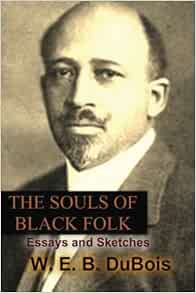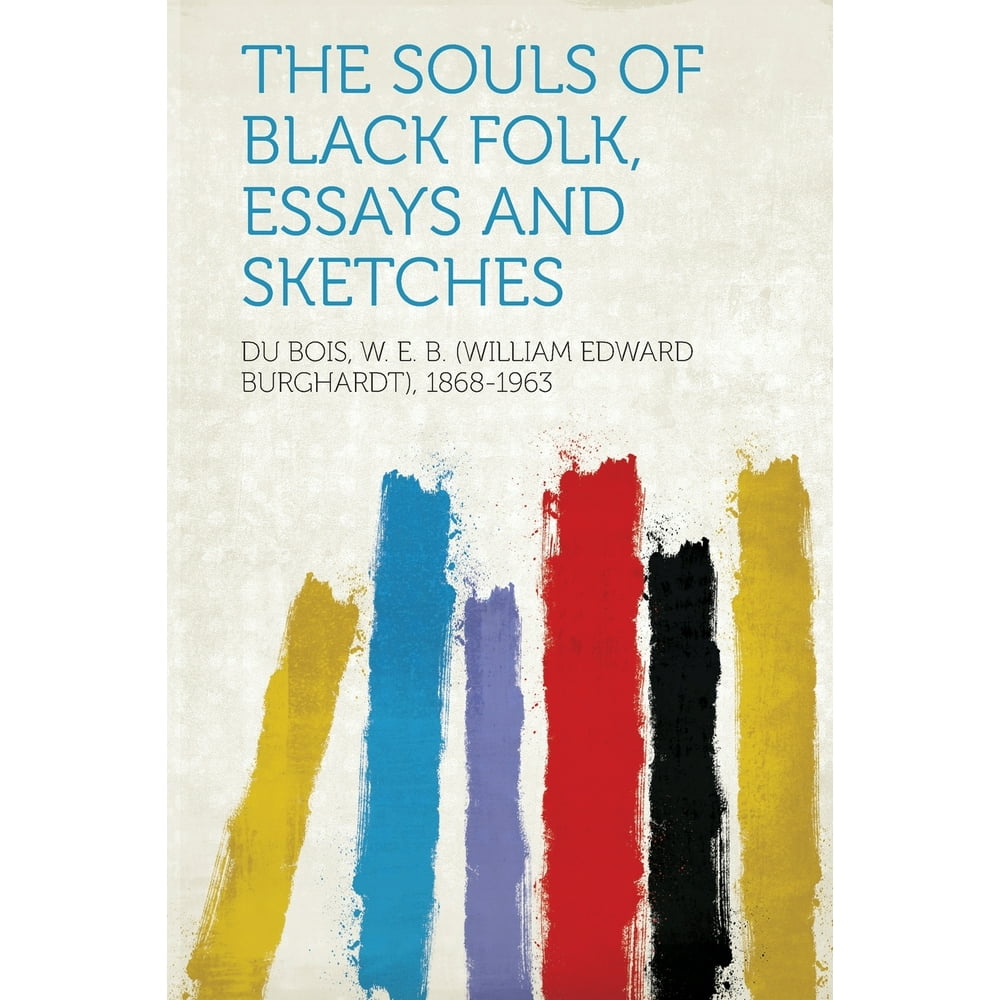
Pages: 5 Words: Topics: Booker T Washington, Rights, Social Issues, The Souls of Black Folk, United States, Up from Slavery Booker T Washington Vs W. E. B. Du Bois Within the literary canon of African American literature, two of the most influential works of that canon would undoubtedly have to be Up from Slavery by Booker T Washington, and The Souls of Black The Souls Of Black Folks: An Analysis W. E. B. Du Bois, author of The Souls of Black Folks, wrote the enlightening text that many progressives (and non-progressives) of May 17, · The Souls of Black Folk: Essays and Sketches by William Edward Burghardt Du Bois Publication date Publisher A.C. McClurg Collection americana Digitizing sponsor Google Book from the collections of Harvard University Language English
The Souls of Black Folk Essay Example For FREE �� - New York Essays
Du Bois William Edward BurghardtThe Souls of Black Folk; Essays and Sketches Chicago: A. Du Bois' The Souls of Black Folk is a seminal work in African American literature and an American classic. In this work Du Bois proposes that "the problem of the Twentieth Century is the problem of the color-line. In addition to these enduring concepts, Souls offers an assessment of the progress of the race, the obstacles to that progress, and the possibilities for future progress as the nation entered the twentieth century. Du Bois examines the years immediately following the Civil War and, in particular, the Freedmen's Bureau's role in Reconstruction, the souls of black folk essays.
The Bureau's failures were due not only to southern opposition and "national neglect," but also to mismanagement and courts that were biased "in favor of black litigants. Since the end of Reconstruction inDu Bois claims that the most significant event in African American history has been the rise of the educator, Booker T. Washington, to the role of spokesman for the race. Du Bois argues that Washington's approach to race relations is counterproductive to the long-term progress of the race. Washington's acceptance of segregation and his emphasis on material progress represent an "old attitude of adjustment and submission.
Du Bois insists that "the right to vote," "civic equality," and "the education of youth according to ability" are essential for African American progress. Du Bois relates his experiences as a schoolteacher in rural Tennessee, and then he turns his attention to a critique of American materialism in the rising city of Atlanta where the single-minded attention to gaining wealth threatens to replace all other considerations. In terms of education, African Americans should not be taught merely to earn money. Rather, Du Bois argues there should be a balance between the "standards of lower training" and the "standards of human culture and lofty ideals of life.
Du Bois returns to an examination of rural African American life with a presentation of Dougherty County, Georgia as representative of life in the southern Black Belt. He presents the history and current conditions of the county. Cotton is still the life-blood of the Black Belt economy, and few African Americans are enjoying any economic success. Du Bois describes the legal system and tenant farming system as only slightly removed from slavery. He also examines African American religion from its origins in African society, through its development in slavery, to the formation of the Baptist and Methodist churches.
He argues that "the study of Negro religion is not only a vital part of the history of the Negro in America, but no uninteresting part of American history. In the last chapters of his book, Du Bois concentrates on how racial prejudice impacts individuals. He mourns the loss of his baby son, but he wonders if his son is not better off dead than growing up in a world dominated by the color-line. Du Bois relates the story of Alexander Crummel, who struggled against prejudice in his attempts to become an Episcopal priest. In "Of the Coming of John," Du Bois presents the story of a young black man who attains an education. John's new knowledge, however, places him at odds with a southern community, and he is destroyed by racism. Finally, Du Bois concludes his book with an essay on African American spirituals.
These songs have developed from their African origins into powerful expressions of the sorrow, pain, the souls of black folk essays, the souls of black folk essays exile that characterize the African American experience. For Du Bois, these songs exist "not simply as the sole American music, but as the most beautiful expression of human experience born this side the souls of black folk essays seas. About Collections Authors Titles Subjects Geographic K Facebook Buy DocSouth Books. Return to The Church in the Southern Black Community Home Page Return to Documenting the American South Home Page.
Contact Us FAQ DocSouth Data The souls of black folk essays UNC Library UNC-Chapel Hill.
W.E.B. Du Bois - The Souls Of Black Folks
, time: 11:27The Souls Of Black Folk Essay Examples - Free Research Papers on blogger.com

The Souls of Black Folk, By W.E.B Du Bois is a collection of thirteen different essays and one short story written by Du Bois between and Du Bois put the different essays into certain sections Pages: 5 Words: Topics: Booker T Washington, Rights, Social Issues, The Souls of Black Folk, United States, Up from Slavery Booker T Washington Vs W. E. B. Du Bois Within the literary canon of African American literature, two of the most influential works of that canon would undoubtedly have to be Up from Slavery by Booker T Washington, and The Souls of Black The Souls of Black Folk: Reading Response Essay. words 4 page (s) The Souls of Black Folk by W. E. B. Du Bois is a book that shows a clear and colorful picture of the African-American social life in the United States of America. Being written at the beginning of the 20th century, the book has a rich literary language and depicts the history of sociology with the help of bright
No comments:
Post a Comment